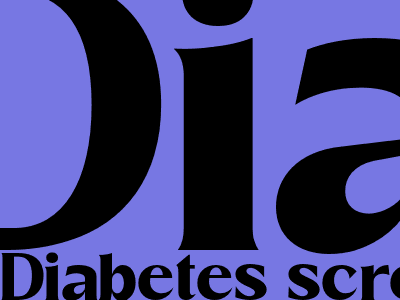
Diabetes Screening: A Comprehensive Guide
What is Diabetes Screening?
Diabetes screening is a series of tests used to identify people at risk of developing or who already have diabetes, a chronic disease that affects the body's ability to produce or use insulin.
Why is Diabetes Screening Important?
Early detection of diabetes is crucial as it allows for timely treatment, preventing or delaying the onset of complications such as heart disease, stroke, blindness, and kidney failure.
Types of Diabetes Screening Tests
1. Fasting Blood Glucose (FBG) Test
Measures blood sugar levels after an overnight fast of at least 8 hours. Normal levels are below 100 mg/dL.
2. Oral Glucose Tolerance Test (OGTT)
Measures blood sugar levels after drinking a sugary solution. Impaired glucose tolerance is indicated by levels between 140-199 mg/dL two hours after drinking the solution, while diabetes is diagnosed at levels of 200 mg/dL or higher.
3. Hemoglobin A1c (HbA1c) Test
Measures average blood sugar levels over the past 2-3 months. Normal levels are below 5.7%, pre-diabetes is between 5.7-6.4%, and diabetes is diagnosed at 6.5% or higher.
Who Should Get Screened for Diabetes?
The American Diabetes Association recommends screening for people at increased risk, including:
- Overweight or obese individuals
- Those with a family history of diabetes
- Women with gestational diabetes
- People with certain medical conditions, such as high blood pressure or high cholesterol
Frequency of Diabetes Screening
Screening frequency depends on individual risk factors. General guidelines include:
- People at low risk: Every 3 years
- People at moderate risk: Every year
- People with prediabetes: Every 6 months or more frequently
What to Do if You're Diagnosed with Diabetes
A diagnosis of diabetes requires lifestyle changes and medical treatment to manage blood sugar levels and prevent complications. This includes:
- Healthy eating
- Regular exercise
- Weight management
- Medication, such as insulin or oral drugs
Conclusion
Diabetes screening is essential for identifying people at risk of developing or who already have diabetes. Early detection and prompt treatment can prevent or delay complications, improving overall health and well-being.